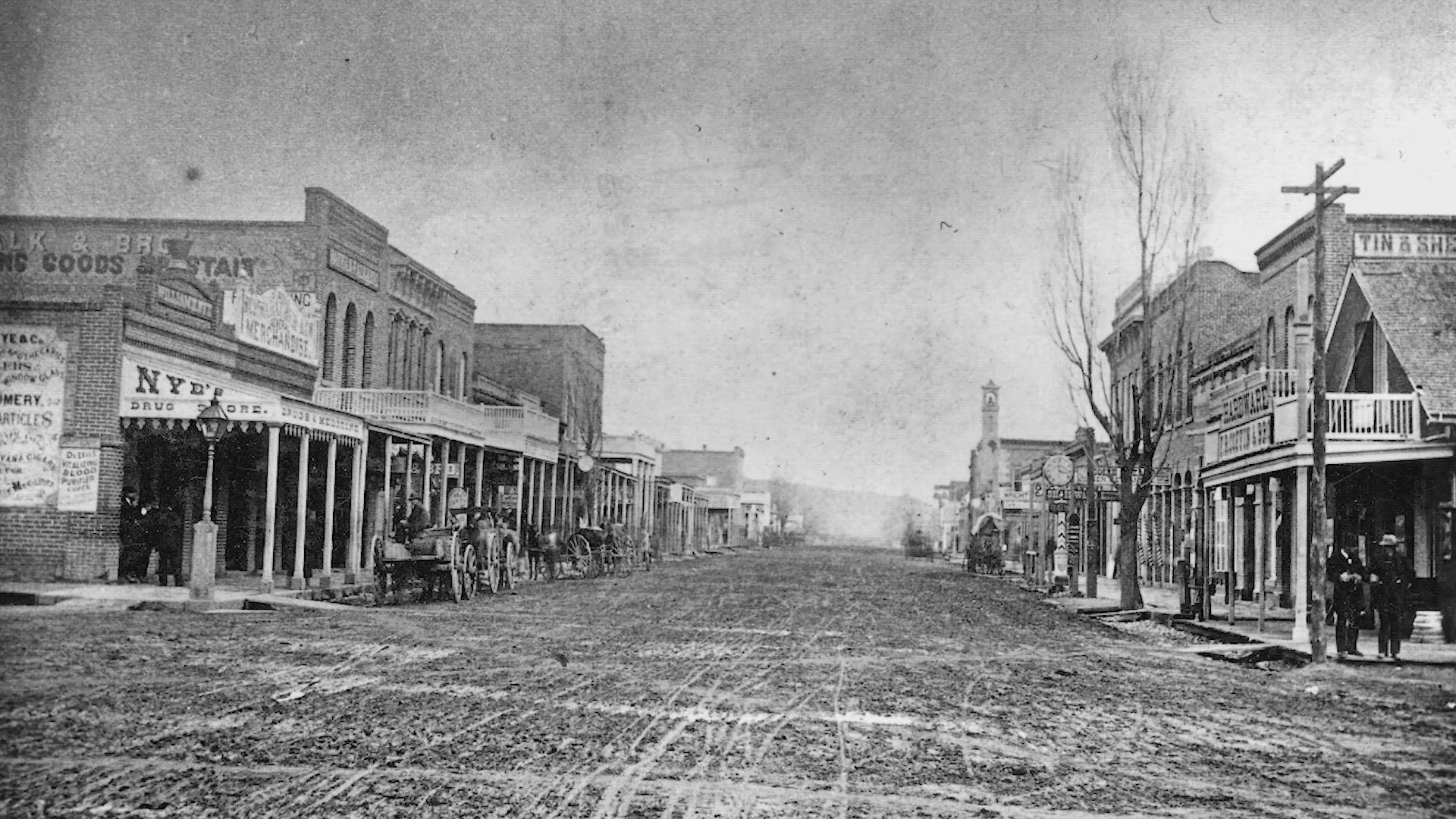BOISE, Idaho — In the 1860s, Boise was benefitting from the gold rush happening in the Boise Basin. More people were moving to the area, and downtown began to grow.
"It was men, you know, men on the frontier, you always had more men than women," historian Mark Iverson said.
According to Iverson, in 1863, 18% of the population in Boise were women.
During that time, finding work for a woman was difficult.
"You could be a seamstress, a washwoman, or a housekeeper essentially. Maybe a school (teacher)," Iverson said. "There was acceptable and nonacceptable and very little room for acceptable women to do anything else."
But none of that, Iverson said, paid very well.
What did pay better was the 'non-acceptable' jobs, including prostitution, which started almost right away in Boise.
"You had a woman named Madame Mustache," Iverson said. "She was tough."
Her real name was Eleanor Dumont, and Iverson said she was a well-known traveling prostitute, with a bit of peach fuzz on her upper lip.
Madame Moustache was also a gambler. But when she wasn't winning, she covered her losses with money made from prostitution.
"She came in 1863, right from the beginning, and along 7th and Idaho streets and then Idaho and 6th Street, it was Garrison back then because it went up to the Fort," Iverson said. "That's basically where the first brothels started up."
At the time, those brothels were nothing more than a temporary shelter.
"We're talking about a tent with a saloon tent and then in the back, you know, there'd be another tent, a big tent, and there would be somebody working," Iverson said.
As the search for gold began winding down in southern Idaho, the pursuit of passion did not. Instead, in the 1880s, it moved into more stable structures.
"It started to change as the city started to develop with America, you get kind of like this lead up to the Gilded Age," Iverson said.
It was around that time a wealthy man named Davis Levy entered the picture.
"He opened an establishment called The California Bakery, and it was on what is now the east side of city hall, and he starts building these tenement houses where city hall is kind of rough brick buildings," Iverson said.
Levy began renting out the top floors of buildings to 'demimonde,' women who were considered on the fringe of society.
"He has offices on the top floor and these rooms for the prostitutes, and then on the bottom floor he has a more acceptable business," Iverson said.
By the 1890s, Boise is thriving as Idaho's new state capitol. To keep up with demand, Levy added smaller, wooden shacks behind his buildings called 'cribs.'
"A brothel woman, or a crib woman, who was out in the shacks in the alleys, it was a much different life than the younger, prettier women in the parlor houses," Iverson said.
It was a practice that was illegal, but not enforced. That is until the Women's Christian Temperance Union entered the picture.
"They want to rid the town of prostitution, which until that time, had been really Idaho Street from 5th Street down to 8th Street," Iverson said.
Because getting rid of prostitution altogether would be a difficult task, they decided to try and consolidate it into one city block.
"They were like, 'well, we condense this into the alleys and upstairs of these rooms and that's where we're going to have it,'" Iverson said.
That block, where Boise City Hall sits now, was known as a number of things.
"In the 1890s, they called it 'White Chapel' after London's White Chapel. They also called it 'The Tenderloin' after Chicago's Tenderloin District," Iverson said.
Eventually, it was known as 'Levy's Alley.'
"People didn't like him, he rubbed people the wrong way," Iverson said.
In October 1901, Levy was found murdered in his room.
"They find his body in room number 13 in his main house, which was on the north side of Main Street, where city hall is," Iverson said. "Basically, Davis Levy was hit over the head one night and strangled with packing twine and dragged from his office where he collects rent to his bed and then he was placed in his bed with a towel and a pillow on top of the towel over his face."
After his death, brothels began to move west, and according to Iverson, moved into buildings that are still around today, including The Olympic Hotel, The Avery and Flying M.
Iverson, who runs a Boise true crime van tour, was featured in a three-part series in October 2023 called 'The 208 Haunted Boise Tour.' You can watch those stories on KTVB's YouTube page.
Join 'The 208' conversation:
- Text us at (208) 321-5614
- E-mail us at the208@ktvb.com
- Join our The 208 Facebook group: https://www.facebook.com/groups/the208KTVB/
- Follow us on Twitter: @the208KTVB or tweet #the208 and #SoIdaho
- Follow us on Instagram: @the208KTVB
- Bookmark our landing page: /the-208
- Still reading this list? We're on YouTube, too:
HERE ARE MORE WAYS TO GET NEWS FROM KTVB:
Download the KTVB News Mobile App
Apple iOS: Click here to download
Google Play: Click here to download
Watch news reports for FREE on YouTube: KTVB YouTube channel
Stream Live for FREE on ROKU: Add the channel from the ROKU store or by searching 'KTVB'.
Stream Live for FREE on FIRE TV: Search ‘KTVB’ and click ‘Get’ to download.

